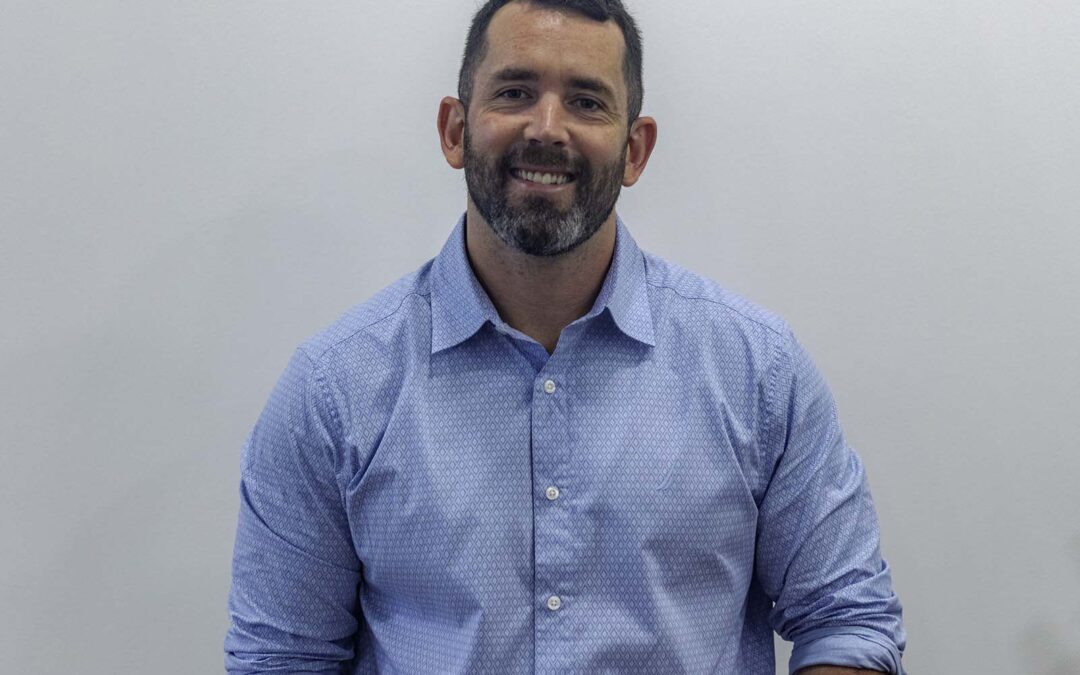Am I “Sick Enough” for Rehab? A Confidential Self-Assessment
Understanding Substance Use Disorder (SUD)
Substance use disorder isn’t a moral failing or a lack of willpower—it’s a chronic disease that changes how your brain functions. When someone develops SUD, they experience uncontrollable cravings and continue using substances despite knowing the harm it causes. Think of it like diabetes or heart disease: it’s a medical condition that requires proper treatment and ongoing management.
Signs of Addiction
The addiction signs show up in every corner of life:
- Physically, your body might develop tolerance or experience withdrawal symptoms.
- Mentally, anxiety, depression, and obsessive thoughts about using can take over.
- Socially, relationships suffer, work performance declines, and activities you once loved fall by the wayside.
The Spectrum of Addiction
Here’s something important to understand: addiction exists on a spectrum. Some people catch it early when symptoms are mild, while others don’t seek help until the situation becomes severe. The good news? Early intervention significantly improves your chances of lasting recovery. You don’t need to wait until things get worse—reaching out for support now can change the trajectory of your life.
Recognizing the Signs That Indicate Inpatient Rehab May Be Necessary
Many people often wonder, “Is my drug problem serious enough to require inpatient rehab?” The truth is, understanding when inpatient rehab is necessary begins with paying attention to the messages your body and mind are sending you. These messages often come gradually, making them easy to overlook or justify.
1. Physical Signs: When Your Body Struggles with Addiction
Your body gives clear signals when substance use becomes dangerous. One of the most significant signs of a drug problem is increased tolerance—needing more of a substance to feel its effects means your body has adjusted to it. This adjustment leads to a harmful cycle of using more.
When you attempt to reduce or stop using, withdrawal symptoms occur. These can include:
- Intense cravings that feel impossible to ignore
- Physical discomfort like sweating, shaking, or nausea
- Irritability and mood swings
- Muscle aches and fatigue
- Sleep disturbances or insomnia
The impact on your physical health goes beyond withdrawal. You may notice changes in your eating habits—either not feeling hungry or having unusual cravings. Your personal hygiene may decline as substance use takes precedence over self-care. Some individuals experience unexplained injuries from accidents that happened while under the influence, or they develop chronic health problems related to their substance use.
These physical signs indicate that your body is struggling to function properly. When substances become central to your body’s chemistry, it indicates that professional medical supervision during detox and recovery is crucial. The presence of withdrawal symptoms alone often suggests that inpatient rehab should be seriously considered, as medical support can make the process safer and more comfortable.

2. Mental and Behavioral Changes: Understanding the Psychological Toll of Addiction
Addiction doesn’t just affect your body—it reshapes how you think, feel, and behave. One of the clearest drug problem signs pointing toward the need for inpatient rehab is a pattern of repeated attempts to quit or reduce use that never seem to stick. You might promise yourself “just this once” or “I’ll stop tomorrow,” only to find yourself back in the same cycle.
Behavioral changes often become impossible to ignore:
- Emotional coping through substances: Reaching for drugs or alcohol whenever stress, anxiety, or sadness appears
- Obsessive thoughts: Spending significant mental energy planning how to obtain substances, when to use them, or hiding evidence
- Escalating doses: Needing more to achieve the same effect due to tolerance, which accelerates both physical and psychological dependence
- Mood instability: Experiencing intense irritability, depression, or anxiety that wasn’t present before
- Personality shifts: Acting in ways that feel unlike yourself—becoming secretive, defensive, or withdrawn
These mental and behavioral changes signal that addiction has moved beyond casual use into territory where professional treatment becomes essential for recovery.
3. Social Consequences: How Addiction Impacts Relationships and Daily Life
Addiction rarely stays contained within the private sphere. As substance use intensifies, the ripples extend outward, touching every corner of your life. You might notice activities you once loved—whether it’s playing sports, creating art, or spending time with friends—gradually falling away as substances take priority. Work performance often suffers, with missed deadlines, unexplained absences, or difficulty concentrating becoming more frequent.
Relationship conflicts emerge as one of the clearest drug problem signs that indicate a need for inpatient rehab. Family members and partners may express concern about your changing behavior, leading to arguments, broken trust, and emotional distance. The secretive nature of addiction—hiding bottles, lying about whereabouts, or making up excuses for money spent—creates walls between you and the people who care about you most. In such scenarios, it becomes crucial to understand how to deal with difficult family relationships that may arise due to addiction.
In some cases, an outpatient rehab program might be a suitable option. This type of treatment offers flexibility, allowing individuals to balance their recovery with daily responsibilities.
Legal problems can escalate quickly, from DUIs to possession charges or even arrests related to behavior while under the influence. These consequences often serve as wake-up calls, highlighting how the physical health impact of withdrawal symptoms and tolerance extends beyond your body into your entire life structure.
Assessing Addiction Severity: Understanding the Spectrum from Mild to Severe Problems That Require Inpatient Rehab Treatment
Healthcare professionals use specific diagnostic assessment tools to evaluate where someone falls on the spectrum of substance use disorder. The clinical criteria examine eleven different factors, including those physical, mental, and social indicators we’ve explored. When someone meets 2–3 of these criteria, clinicians typically classify the condition as mild. Meeting 4–5 criteria indicates moderate severity, while 6 or more criteria points to severe addiction.
Is My Drug Problem “Bad Enough” for Inpatient Rehab? This question reflects a common concern, but the answer isn’t always straightforward. While someone experiencing mild to severe addiction criteria at the lower end of the spectrum can benefit tremendously from outpatient support, therapy, and community resources, those facing severe addiction often need the structured environment and intensive medical supervision that inpatient treatment provides.
The key distinction lies not in whether you “deserve” help, but in matching the level of care to your specific needs. Severe cases—especially those involving dangerous withdrawal symptoms, co-occurring mental health conditions, or repeated unsuccessful attempts to quit—typically require the comprehensive support that residential treatment offers.
Debunking Myths: You Don’t Have to Hit Rock Bottom to Seek Help Through Inpatient Rehab Programmes at Insight Recovery Treatment Center
The rock bottom myth persists because dramatic stories of loss and desperation often dominate media portrayals of addiction. This narrative suggests that someone must lose everything—their job, family, home, or health—before they’re “ready” for rehab treatment. The truth is that waiting for rock bottom can be dangerous, sometimes fatal.
Addiction is a progressive condition that worsens over time without intervention. Seeking rehab help early, when you still have your relationships, career, and health intact, actually improves your chances of lasting recovery.
High-functioning addicts present a particularly complex picture. These individuals maintain jobs, pay bills, and appear successful on the surface while privately struggling with substance use. They might think:
- “I can’t be that bad—I still go to work every day”
- “My drinking only happens at night”
- “I haven’t gotten a DUI yet”
The chronic nature of addiction means that even high-functioning individuals experience the same brain changes, cravings, and loss of control as anyone else with substance use disorder. Inpatient care at Insight Recovery Treatment Center provides the structured environment needed to break patterns before they escalate.
Why Choose Inpatient Rehab at Insight Recovery Treatment Center for Severe Drug Problems
When addiction reaches a point where daily functioning becomes compromised, inpatient rehab offers a structured environment designed for healing and recovery. At Insight Recovery Treatment Center, our residential programs provide round-the-clock care that addresses both the physical and psychological aspects of substance use disorders.
The Importance of Medically Supervised Detoxification
Medically supervised detoxification stands as the cornerstone of safe recovery. Our medical team monitors vital signs, manages uncomfortable withdrawal symptoms, and ensures your body adjusts safely as substances leave your system. This level of care significantly reduces health risks that can arise during the detox process, including complications outlined in this comprehensive guide.
Comprehensive Treatment Approaches Beyond Detox
Beyond the initial detox phase, our facility provides comprehensive treatment approaches:
- Individualized Cognitive Behavioral Therapy (CBT) sessions that help identify and change thought patterns contributing to substance use
- Group support sessions where you connect with others facing similar challenges
- Behavioral therapy tailored to address the specific substance and severity of your addiction, such as Benzodiazepines
- Structured daily routines that remove you from triggering environments and establish healthy patterns
The Benefits of Inpatient Rehab Care
The immersive nature of inpatient care means you can focus entirely on recovery without the distractions or temptations of everyday life. However, it’s important to note that recovery doesn’t end with inpatient treatment. Transitioning to sober living and outpatient rehab can provide the necessary structure for lasting recovery.
Specialized Dual Diagnosis Treatment
Our facility also specializes in dual diagnosis treatment, addressing both mental health issues and substance use disorders simultaneously. If you’re ready to take the first step towards recovery or have any questions about our programs, please don’t hesitate to contact us.
Taking the Next Step Towards Recovery: Reaching Out for Support From Insight Recovery Treatment Center’s Inpatient Rehab Programmes
If you’re still asking yourself, “Is my drug problem ‘bad enough’ for inpatient rehab?”—the answer is that seeking help for drug problem isn’t about reaching a certain threshold of suffering. You deserve support right now, wherever you are in your journey.
Thousands of people face the same uncertainty you’re experiencing. The courage to reach out is already within you, and our team at Insight Recovery Treatment Center understands the vulnerability that comes with taking this step. We offer confidential consultations where you can discuss your concerns openly, without judgment or pressure.
We provide a range of addiction treatment options including specialized programs for substance abuse such as cocaine addiction. Our Massachusetts-based programs are designed to cater to your specific needs.
You can connect with us by:
- Calling (781) 653-6598 to speak with a compassionate specialist
- Scheduling a private consultation to explore your treatment options
- Asking questions about our programs
Your story matters, and recovery is possible. Whether you’re calling for yourself or a loved one, we’re here to listen and guide you toward healing. The right time to reach out is when you’re ready—and that moment can be today.
Additionally, if you are looking for a transitional phase between intensive treatment and full independence, our sober living program could be an ideal solution. This program serves as a bridge between addiction treatment and independent living, helping you to maintain the progress you’ve made in recovery while gradually reintegrating into everyday life.






